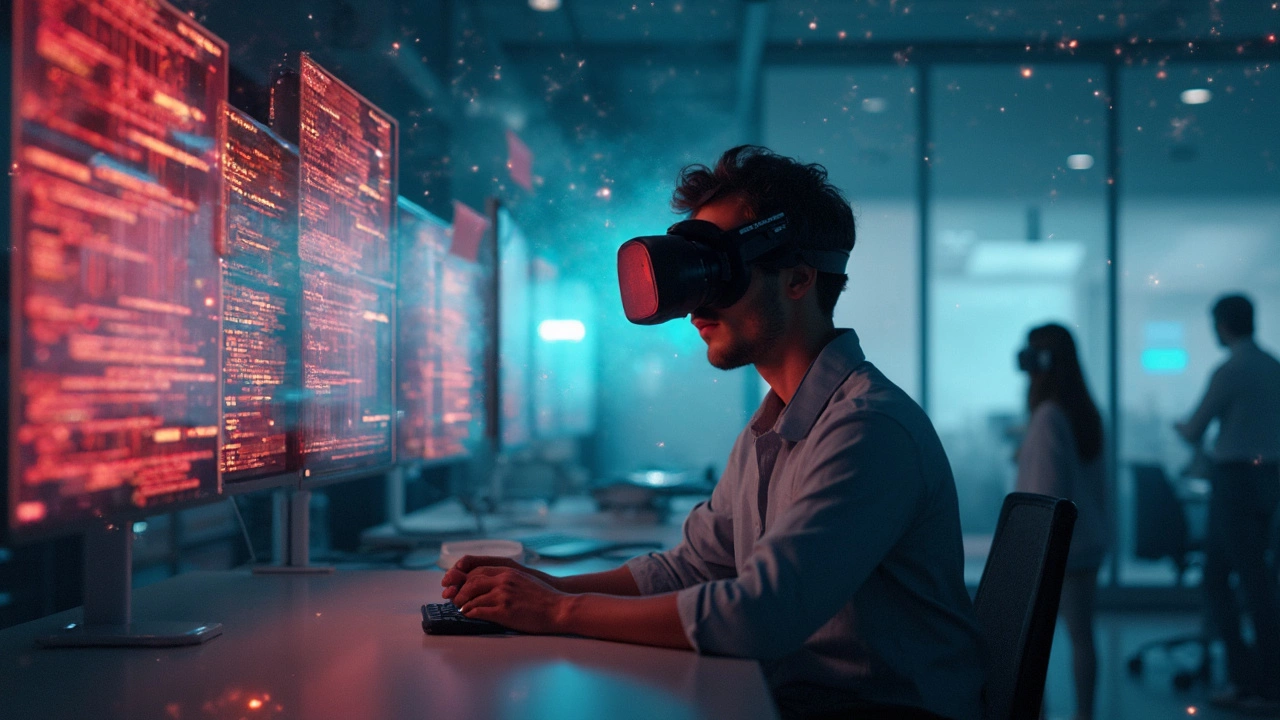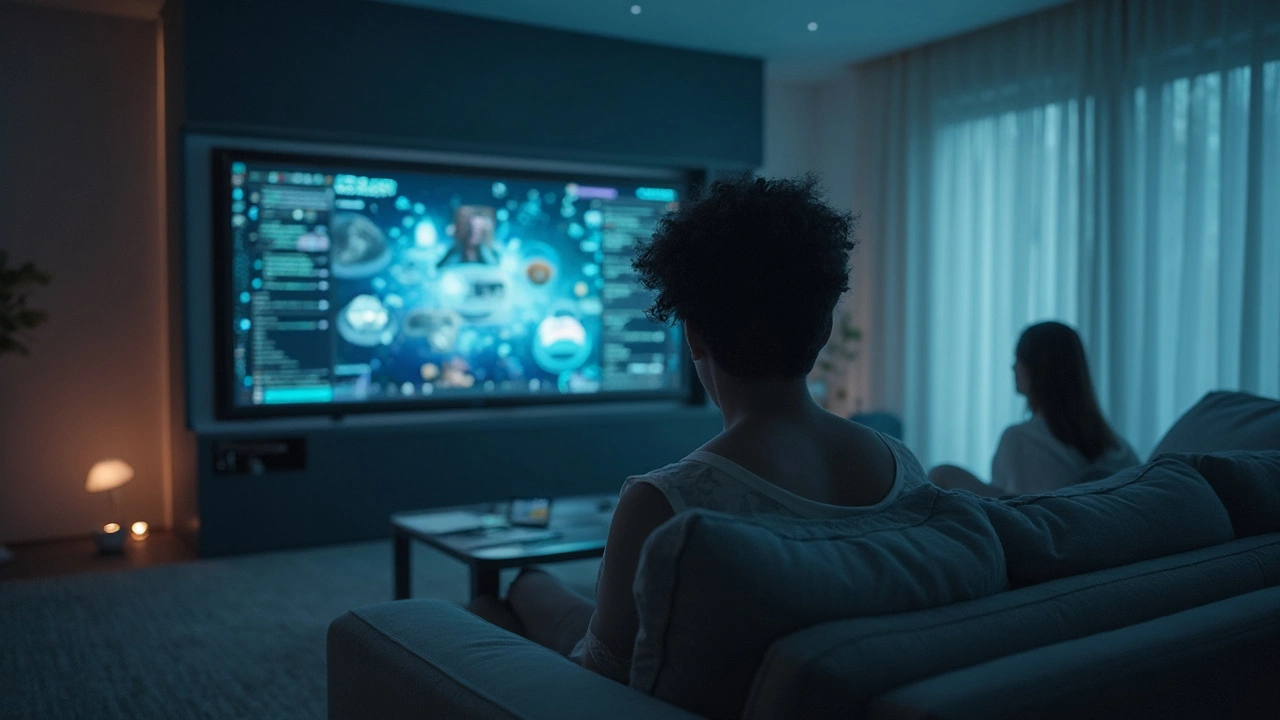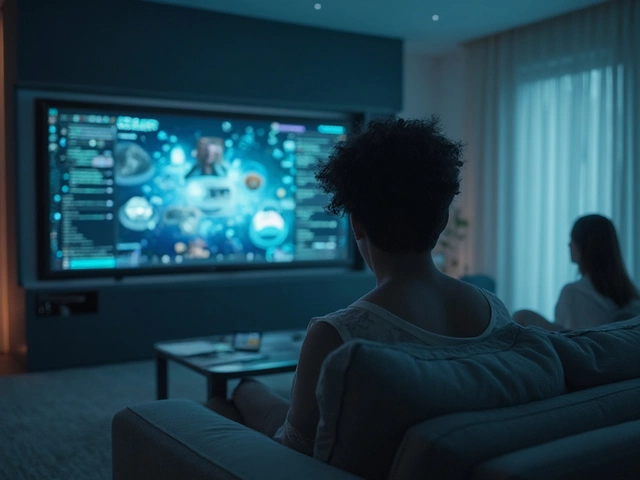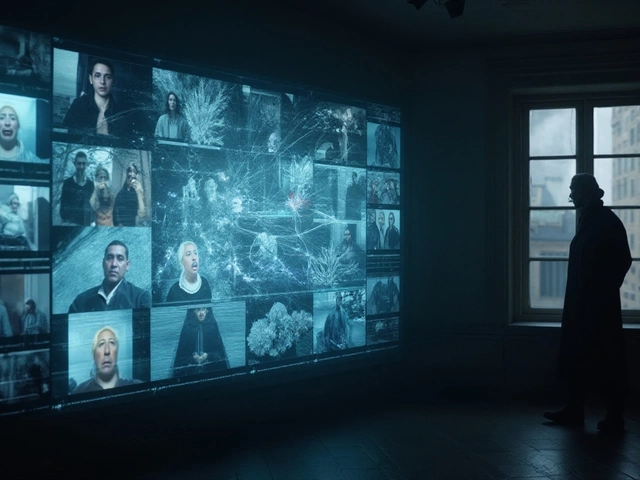If you've ever watched Black Mirror and found yourself feeling a little uneasy, you're not alone. This popular series often leaves us pondering, 'Could this really happen?' And that's precisely why it's so intriguing—it's not just a show; it might be a peek into possible futures.
Black Mirror doesn't just tell stories about tech; it digs deep into how these innovations might impact our lives, for better or worse. The show pulls no punches in exploring the dark side of technological advancement, and if we're paying attention, there's much to learn.
Each episode is a standalone story, making it easier to pick and choose which 'warnings' resonate most with your concerns. And let's be honest—some of these scenarios don't seem too far off from what we're seeing today with AI, social media, and privacy issues.
Ever thought about how much of your life is online or questioned the power of your favorite app? Those reflections are at the heart of Black Mirror's message. As we dive deeper, think about your relationship with technology. Is it balanced, or could you use a few boundaries?
- Black Mirror and Society
- Technology's Dark Side
- Episode Insights
- Real-life Parallels
- Tips for a Balanced Tech Life
Black Mirror and Society
Black Mirror is more than just a hit TV show; it's a reflection on our digital age and a cautionary tale about where society could head if we're not careful. Created by Charlie Brooker, the show touches on some nitty-gritty aspects that often go unspoken in our tech-driven world. But what's the real impact on society?
For starters, Black Mirror brings forth the concept that technology isn't neutral. It's shaped by the people who create it and the societies that use it. Episodes like 'Nosedive' show how social media can dictate our social status and value, a scenario that doesn't feel too far-fetched considering today's influencer culture. Ever noticed how people obsess over likes and followers?
Moreover, privacy concerns are a big theme. In 'The Entire History of You,' there's a technology that records everything you see. Sounds extreme? That's what makes it thought-provoking! With devices like smartphones and home assistants tracking vast amounts of data, what's fictional might not be that far from real life. This brings into question our comfort levels vis-a-vis privacy and surveillance.
Impact and Relevance
Let's not forget how the series also delves into the ethics of AI and robotics, as depicted in episodes like 'White Christmas.' These episodes challenge us to think about moral implications and how society might handle these advancements.
The broader message? We need to consider the societal impact of technology before blindly rushing into the next best thing. This doesn't mean we should stop innovation, but rather approach it with a bit more caution. After all, can we handle all the power that comes with it?
In summary, Black Mirror serves as a stark reminder of the potential downsides of unchecked technological growth. Take a moment to reflect—are you in control of technology, or is it controlling you?
Technology's Dark Side
In the whirlwind of new gadgets and apps, it’s easy to forget there's a flip side to technology. Black Mirror bravely dives into this shadowy area, giving us scenarios that are chilling, yet unnervingly plausible. It's like a modern cautionary tale, asking us to think twice about the tech we let into our lives.
One major theme is privacy. With the rise of smart devices and NSA-related controversies, privacy isn’t just a subplot—it’s a growing concern. Remember the episode "Nosedive," where every interaction is rated in public view? It highlights how real tech, like social media, shapes our self-worth and privacy levels. In real life, experts say around 70% of Americans feel their personal data isn’t secure online. A wake-up call, right?
The Battle with AI
Then there’s AI. Black Mirror often shows AI taking over jobs, decisions, and even emotions. Take "White Christmas," where personal consciousness is cloned into a digital assistant. It's not far-fetched if you consider that AI home assistants are now present in 39% of U.S. households. The fear? Losing control over our own lives to non-human decision-makers.
Social Media's Grip
Social media's influence is another dark theme. Episodes like "Shut Up and Dance" underscore how easily digital footprints can be manipulated, resulting in dire consequences. Remember when studies revealed that excessive social media use is linked to depression and anxiety? The show amplifies that there's truth to those claims.
- Tip: Regularly audit your app permissions. It's surprising how many times we grant access without thinking.
- Tip: Limit the personal data you share. Once it's out, reclaiming it is rarely possible.
Black Mirror isn’t just about fearing tech; it's about understanding it. By recognizing these issues, we can use technology wisely and protect our future selves.

Episode Insights
Diving into Black Mirror episodes, each one offers a glimpse into how the tech we love today could shape—or maybe twist—our future. Every episode feels like a reflection of potential realities, urging us to question the path we're on.
'Nosedive' - Social Media Madness
Remember 'Nosedive'? It's all about living in a society where your social rating dictates everything, from where you can live to how you're treated. Sounds eerily familiar? We're already seeing this with social media and its impact on our self-worth and social interactions. It's a nudge to consider how much value we put on virtual validation.
'The Entire History of You' - Privacy Issues
Then there's 'The Entire History of You.' Imagine recording every moment of your life and replaying it whenever you like. While it sounds cool, it raises big questions about privacy and memory. How much do we want to remember, and more crucially, who else might access those memories?
'Shut Up and Dance' - Online Vulnerability
'Shut Up and Dance' is another nail-biter, highlighting the vulnerability we face online. Hackers use personal data to manipulate characters' lives. This episode isn't just fiction—it echoes real threats like phishing and cyberbullying.
| Episode | Main Theme |
|---|---|
| 'Nosedive' | Social media and societal pressure |
| 'The Entire History of You' | Privacy and memory |
| 'Shut Up and Dance' | Cybersecurity and vulnerability |
These episodes, while entertaining, serve as a stark reminder of the balance we need with technology. They're cautionary tales urging us to be more mindful about our digital footprint and the way we let tech influence our lives.
Real-life Parallels
Black Mirror, while fictional, mirrors enough of our reality to get us thinking. Let’s dive into a few scenarios where what's on screen isn’t too far from what’s happening right now. It's fascinating—and a bit chilling—to see these technology-driven stories unfold before our eyes.
Social Media and Personal Branding
Remember the episode where everyone rates each other, and your score defines your social status? Sound familiar? In today’s world, likes, followers, and ratings often shape perceptions of success and social standing. People curate their online personas meticulously, impacting how others view them, sometimes bypassing their real-world personalities.
Surveillance and Privacy
Episodes showcasing over-the-top surveillance might feel a tad dramatic, but consider this: we're closer than we think. Smart devices, security cams, and even our mobile phones track our movements, habits, and preferences. In some places, closed-circuit television (CCTV) is abundant and used extensively for security reasons. In England, for instance, there's about one camera for every eleven people!
AI and Automation
Black Mirror’s tales involving AI, like digital clones or intelligent machines, touch on today’s advancements. From virtual assistants like Alexa to sophisticated AI-driven customer service bots, automation is part of our daily lives. Experts predict that AI and automation could replace as much as 30% of the world’s workforce by the mid-2030s, according to a recent report.
| Technology | Present Status |
|---|---|
| Social Media Influence | 7 in 10 Americans use social media to connect. |
| Surveillance | England: 1 CCTV camera for every 11 people. |
| AI Adoption | 30% workforce could switch to automation by 2030s. |
With these real-world elements creeping closer to Black Mirror’s tales, it's crucial to reflect on how we use technology. Are we controlling it, or is it starting to control us? Maybe the show isn’t as much a warning as it is a wake-up call.

Tips for a Balanced Tech Life
Navigating our tech-filled world can feel overwhelming, but achieving balance is totally possible. Here are some practical tips to help you live harmoniously with technology, just as you'd hope to have after watching Black Mirror.
Set Tech-Free Zones
Creating spaces in your home where screens are off-limits can make a huge difference. Consider the dining room or bedroom as places to unplug. It encourages real conversations and can improve sleep quality.
Prioritize Analog Activities
Engage in hobbies that don’t require electricity—like reading a physical book, gardening, or playing an instrument. These activities provide a mental break from the digital world and are surprisingly rewarding.
Schedule Screen Time
Use your phone's settings to monitor your screen time. Set daily limits for social media and other non-essential apps. You might be amazed at how much time you save!
Mindful Tech Use
Be intentional about when and why you use technology. Ask yourself if what you're doing is necessary right now. Mindfulness can prevent mindless scrolling and enhance productivity.
Embrace Tech for What It's Worth
While tech isn’t inherently bad, it's all about how we use it. Let devices simplify tasks, keep you connected, and offer entertainment in moderation. Balance is the key to reaping its benefits without falling into the ‘Black Mirror’ trap.


